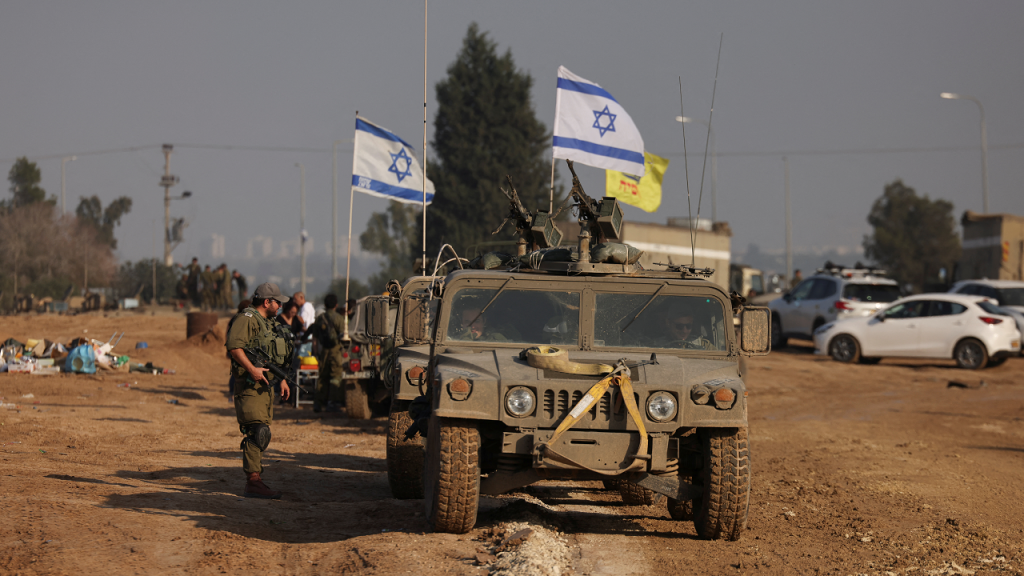Israel’s foreign minister, Israel Katz, issued a warning to Iran, threatening direct attacks on Iranian targets if Iran launches an attack on Israel from within its territory. This warning came after Iran’s Supreme Leader Ayatollah Ali Khamenei threatened retaliation for an Israeli airstrike that killed top Iranian military officials in Syria. Israel has historically been targeted by Iran through proxy terrorist groups like Hamas, Hezbollah, and the Houthis. A direct attack by Iran on Israel and subsequent retaliation by Israel would represent a significant escalation in the conflict between the two nations.
The exchange of threats between Israel and Iran highlights the potential for Israel’s conflict with Hamas to evolve into a broader regional conflict that the U.S. has been working to prevent. Despite the U.S.’s strong alliance with Israel, there is a growing divide between President Biden’s administration and Israeli Prime Minister Benjamin Netanyahu’s government. Biden recently criticized Netanyahu’s approach to the war in Gaza, labeling it a mistake. This criticism stemmed primarily from concerns about civilian casualties in Gaza, an issue that has prompted calls from Democrats in Congress for Biden to withhold arms sales to Israel unless measures are taken to limit civilian casualties on the battlefield.
The tensions between Israel, Iran, and the U.S. reflect a complex geopolitical landscape in the Middle East, with various actors pursuing their own interests and agendas. Israel’s willingness to strike Iranian targets within Iran’s territory in response to any attack from Iran represents a significant shift in the dynamics of the conflict. The U.S. has been navigating its relationship with Israel carefully, balancing its support for the country with concerns about the humanitarian impact of the conflict in Gaza. Biden’s criticisms of Netanyahu’s handling of the conflict underscore the challenges faced by the U.S. in managing its relationships in the region.
Iran’s continued threats against Israel and Israel’s readiness to respond with direct military action highlight the volatile nature of the situation in the Middle East. The involvement of external actors like the U.S. adds another layer of complexity to the conflict, with different countries pursuing competing interests and strategies. The possibility of a regional conflict breaking out as a result of the ongoing hostilities between Israel and Iran is a significant concern for the international community. Efforts to prevent further escalation and find a diplomatic resolution to the conflict are crucial in order to avoid a wider conflagration in the region.
The U.S.’s role in the conflict between Israel and Iran is crucial, given its strong ties to Israel and its efforts to maintain stability in the region. Biden’s criticisms of Netanyahu’s approach to the conflict reflect the challenges faced by the U.S. in managing its relationships with key allies in the Middle East. The calls from Democrats in Congress for arms sales to Israel to be contingent on efforts to limit civilian casualties highlight the growing pressure on the Biden administration to address humanitarian concerns in the region. Finding a path towards de-escalation and a peaceful resolution to the conflict remains a pressing priority for all involved parties.
As the situation in the Middle East continues to evolve, the dynamics of the conflict between Israel, Iran, and other regional actors will likely shift. The threat of a wider regional conflict breaking out as a result of the ongoing tensions and hostilities underscores the importance of diplomatic efforts to defuse the situation. Finding a way to address the underlying issues driving the conflict and prevent further escalation is key to achieving lasting peace and stability in the region. The involvement of external actors like the U.S. adds another layer of complexity to the situation, requiring careful navigation and coordinated efforts to address the root causes of the conflict.


